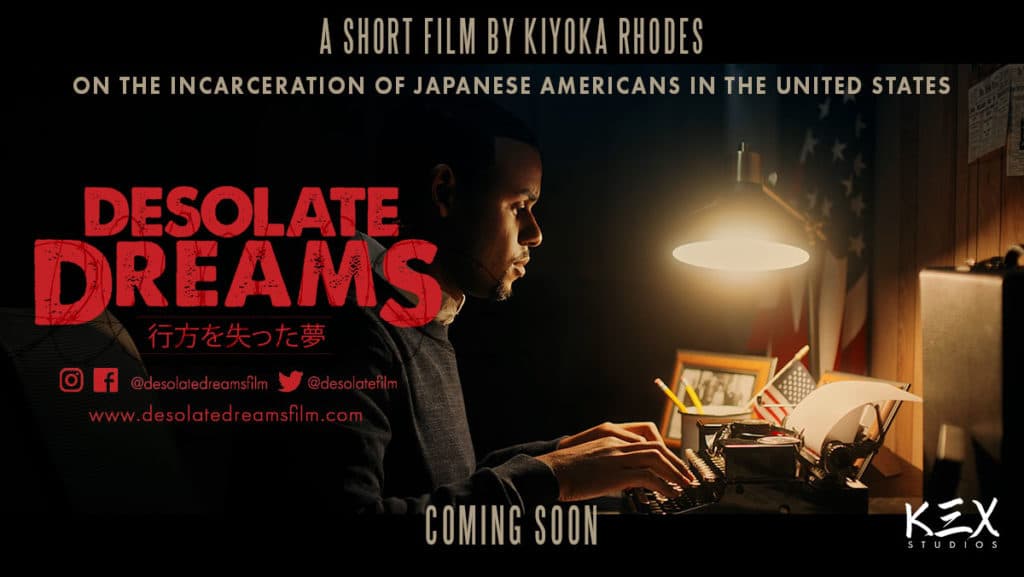
Celtx is a proud supporter of media creators from around the world. With over 6 million users from 190 countries, the Celtx Community is as dynamic as the content created daily in the online Studio.
Celtx’s screenwriting and pre-production software has always embraced the promise of technology in accelerating the accessibility of filmmaking and screenplay writing. For our communities of writers and creators, though, support requires more than access to the proper pre-production tools and script editors; let’s not mistake the tool for the task.
Sharing the journeys, hard work, and unique perspectives of creators is integral to championing filmmaking and screenwriting communities. The act of giving visibility to the stories of engaging creators encourages learning and growth, and allows for the whole community to thrive in each other’s successes.
The Celtx team has always believed this to be true, and that’s why we’ll be working on showcasing more of the incredible content produced in the Celtx Studio – starting with Kiyoka Rhodes and her short film, Desolate Dreams.
Spotlight on Writer, Director, and Producer Kiyoka Rhodes

Emmy nominee and award-winning filmmaker Kiyoka “Kex” Rhodes is a writer, producer, and director of films, commercials, and branded content for multi-screen platforms. A graduate of American University (B.A. Film & Media Arts, Graphic Design Minor), she has since directed and produced various commercials, films, and other content for television with companies like BBC Studios, NBC4 Washington, Comcast, The CW Network (DCW50), and the American Bar Association (ABA). Kiyoka continues to use the art of film to tell stories with purpose and impact – including her newest short film, Desolate Dreams.
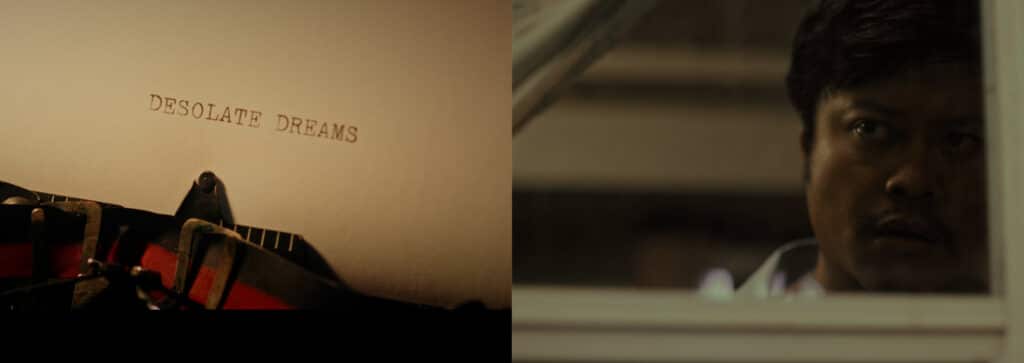
The Making of Desolate Dreams
Desolate Dreams is a dramatic short film by Kex Studios set in 1942 downtown Los Angeles. Based on real events, Desolate Dreams follows an African American journalist who advocates for justice alongside a Japanese American family, who were forced into a prison camp. The writer, producer, and director of the film, Kiyoka “Kex” Rhodes, drafted the script for Desolate Dreams in Celtx, and has offered to share her process behind the making of the film.
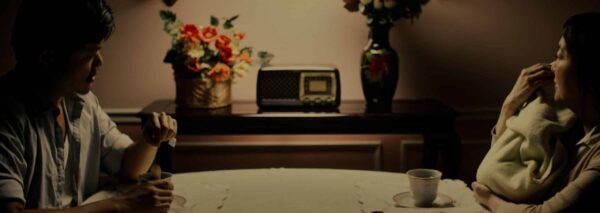
Desolate Dreams began in the summer of 2019. My sister and I took our Japanese American mother to the Smithsonian’s National Museum of American History. At the time, there was an exhibit called “Righting a Wrong: Japanese Americans and World War II.” Seeing all the personal objects and stories of Japanese Americans who were forced into prison camps across the U.S. really moved me. I gravitated towards one story, in particular — Bill Shishima and his family’s story. It was at that moment where I began to delve deeper into my research. I felt the urge to make a film to pay homage to the Japanese Americans who suffered from incarceration in this country.
I had the honor of connecting with Bill Shishima, who was incarcerated at Heart Mountain, on the phone. I asked him questions about what his experience was like as a young boy living in downtown LA, and having to take about a two-day train ride to a prison camp at Heart Mountain in Wyoming. Hearing about his family’s experience was impactful to hear and gut-wrenching at the same time, and that is when I really started developing the plot of this film.
Once I had all my research in place, I went through several outlines of the story and character descriptions. This can make the screenwriting process much more seamless, especially with a more detailed plot like a period piece. When it was time to write the screenplay, Celtx was a huge factor in the drafting phase. Utilizing the Celtx Revision Mode feature was very effective. Even the Read Through feature with different character voices was great to use. The script went through 14 revisions and rewrites and is now ready to be filmed!
Before filming anything, having visuals in place is so important. Part of this involves a detailed look book, pitch deck, concept art, and storyboarding. Jiayi Lu-LaLiberte (a.k.a. Lu Lu) was so instrumental during the development phase. She is a talented concept artist and sketched out several inspirational images for the pitch deck.
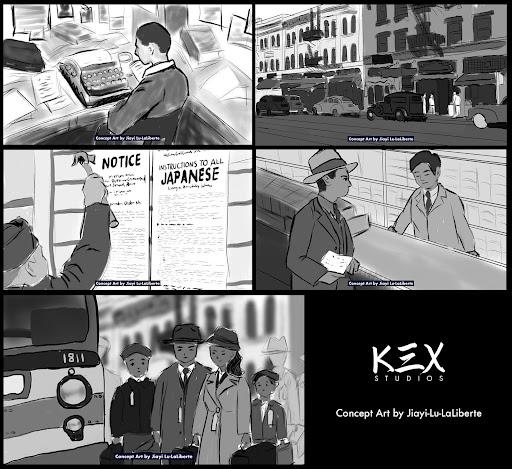
In the fall of 2021, we filmed our new teaser. This teaser is being used to raise awareness and garner funding from potential contributors and sponsors. It’s a very exciting phase, and we are more than ready to make Desolate Dreams a reality!



Thinking about where everything began with my research, I learned a lot from the Shishima family’s story and the many others who suffered from incarceration in this country. I was drawn to their personal stories and their longing for normalcy in a culture that didn’t see them as “American.” As a half African American and half Japanese filmmaker, I wanted to tell a story that not only looks at one family’s experience with the impact of Pearl Harbor but also the African American community that advocated for justice alongside many Japanese Americans. Especially with the recent onslaught of Asian American hate crimes and police brutality that we’ve been seeing over the past several decades, I hope this film continues to raise awareness on these important issues.
We often live in the moment, forgetting that history matters. It makes up who we are as a society and as a people. History aside, this is an inspirational film for everyone that touches on common themes we all relate to — our friendships, families, hopes, dreams, and hardships. We are all walking stories.
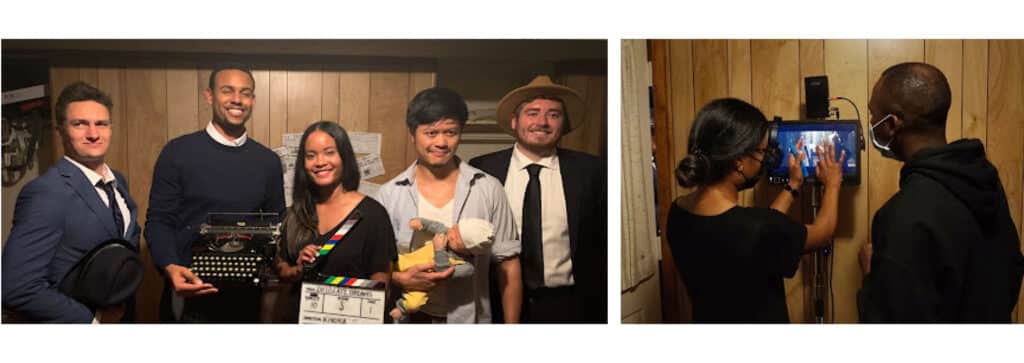
To follow Kiyoka’s journey of making Desolate Dreams, or to support the making of the film, please follow their social media channels or head to their website to donate:
